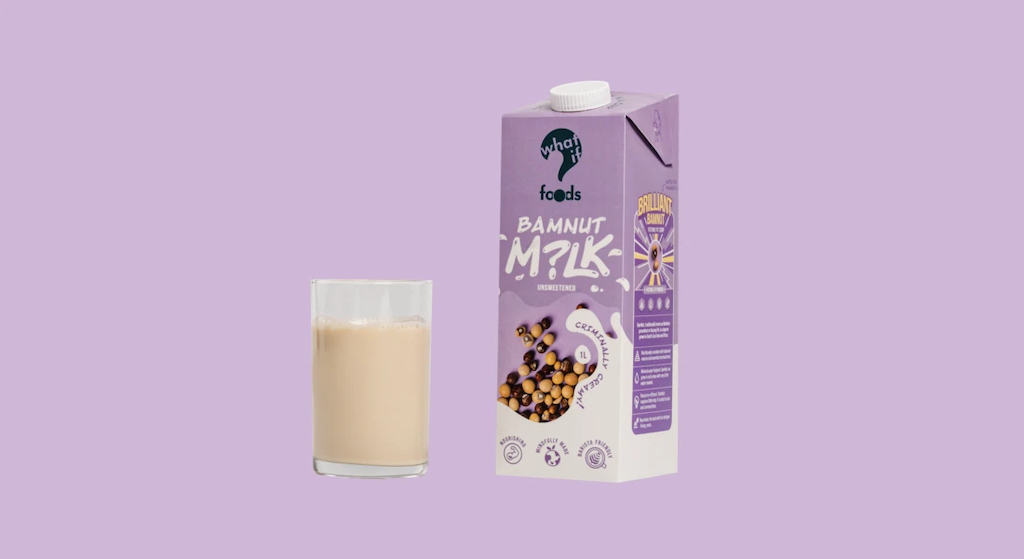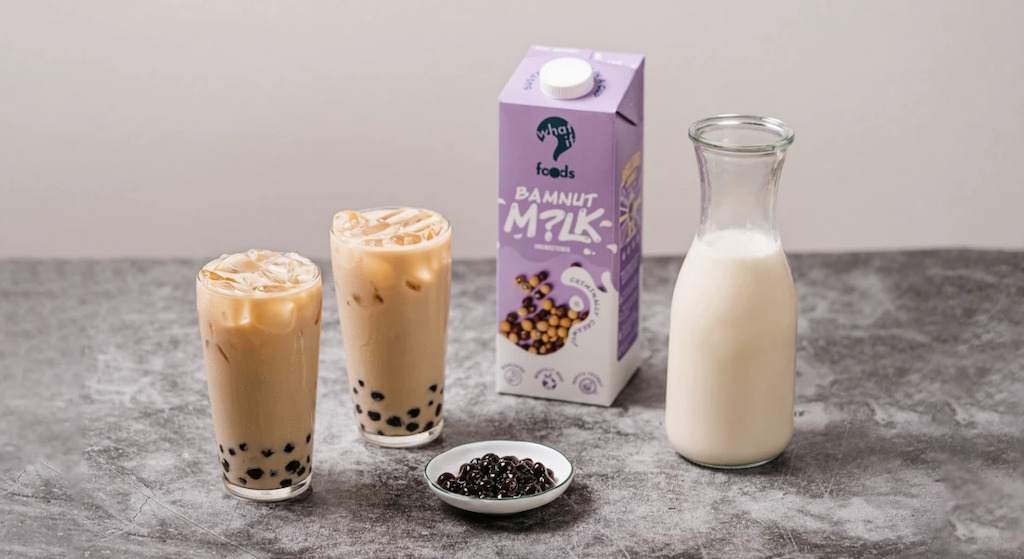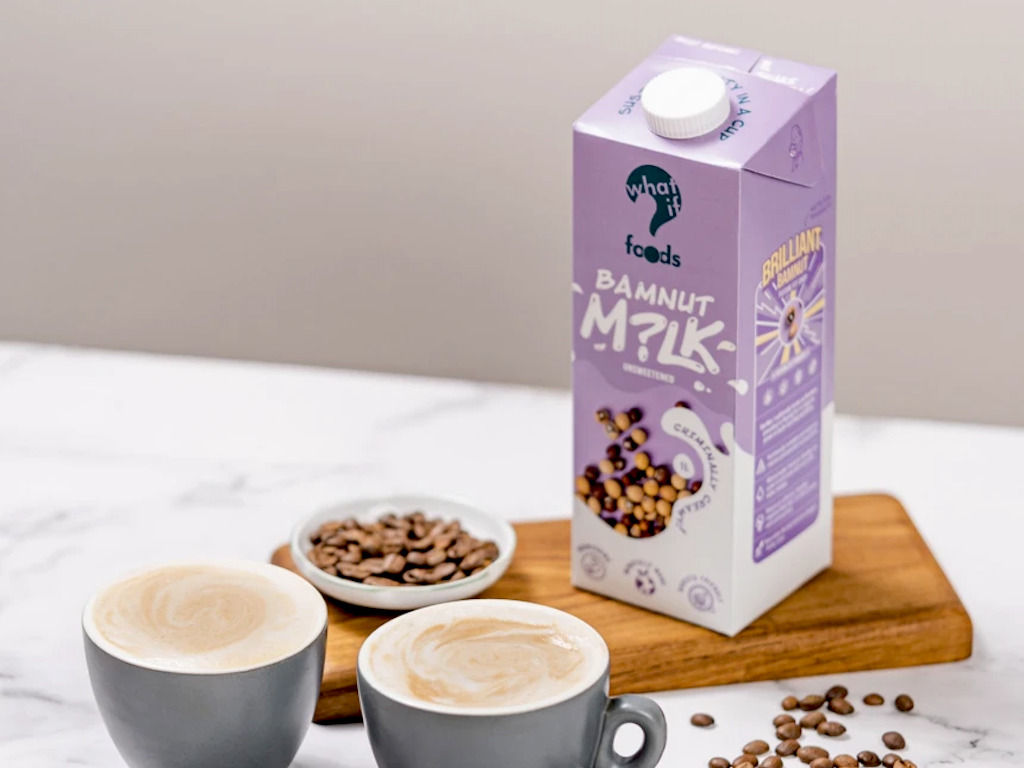3 Mins Read
There’s a new plant-based milk in town, and it’s not made from soy, almonds or cashews. Launched by Singapore food tech WhatIF Foods, BamNut Milk is made from the climate-resilient and regenerative crop Bambara groundnuts, which are legumes packed with protein.
Singapore-based startup WhatIF Foods has just launched its new BamNut Milk on the market, made from a base of regionally grown Bambara groundnuts, coconut oil and shea butter. The firm first revealed the product back in December last year, and has now made it available to Singapore residents via its direct-to-consumer website and in select Cold Storage retail locations.
What is BamNut Milk?

Unlike other plant-based milks on the market, many of them featuring soy, almonds, cashews or oats as its base, BamNut Milk is made from Bambara groundnuts (Vigna Subterranean). The legume is native to West Africa, but is now grown in some parts of Southeast Asia. WhatIF Foods currently sources its groundnuts from Ghana and Nigeria and is working on an outreach programme with small farming communities in Indonesia so they can bring their sourcing closer to home.
What makes the Bambara groundnut a “future fit” crop is its ability to grow on arid land with minimal water, while also restoring the land on which it is grown by boosting nitrogen in the soil.
According to WhatIF Foods, the carbon footprint of its 100% vegan BamNut Milk is just one quarter of that of cow’s milk from New Zealand that has been shipped to Singapore.
But more than being sustainable, the startup believes its new BamNut Milk product, which also features shea butter and coconut oil as ingredients, is more versatile in its food and drink applications because of its creamy quality. For instance, it can foam and froth in lattes or bubble teas just like real dairy milk.

‘Highly nutritious’ vegan milk
WhatIF further says that BamNut Milk sets itself apart from other plant-based dairy products because of its nutritional value. It has no added sugar, boasts 7 grams of protein, while containing 31% less fat compared to cow’s milk.
The “highly nutritious” and high-fibre alternative is fortified with vitamins and minerals too, including calcium, and Vitamins B12 and D2. “If you are health conscious, BamNut Milk delivers,” said the startup.
Climate-resilient crops
BamNut Milk is the latest product to be added in WhatIF’s climate-friendly plant-based food portfolio. The startup is dedicated to using crops that are resilient to poor soil, dry weather and hot temperatures—conditions that are set to become more widespread as the climate crisis continues to intensify.

Other crops that the company has incorporated into its range include moringa, lupin and pea protein, which feature in products like smoothies or shakes, soups and noodles.
WhatIF isn’t alone either, with an emerging group of startups now also on a mission to diversify the range of plant crops we use to develop more sustainable foods. Based in Chicago, snack brand Nemi makes its vegan “holisticks” out of amaranth seeds and nopal, a species of cactus it sources from an organic farm in Mexico.
Over in Seattle, Atomo is leveraging upcycled watermelon seeds, stems and husks to create a “coffee” that tastes, smells and looks just like the real deal, without the use of any coffee beans, which are now vulnerable to climate-related temperature rise, longer drought periods and rising frequency of pest invasion.
All images courtesy of WhatIF Foods.




